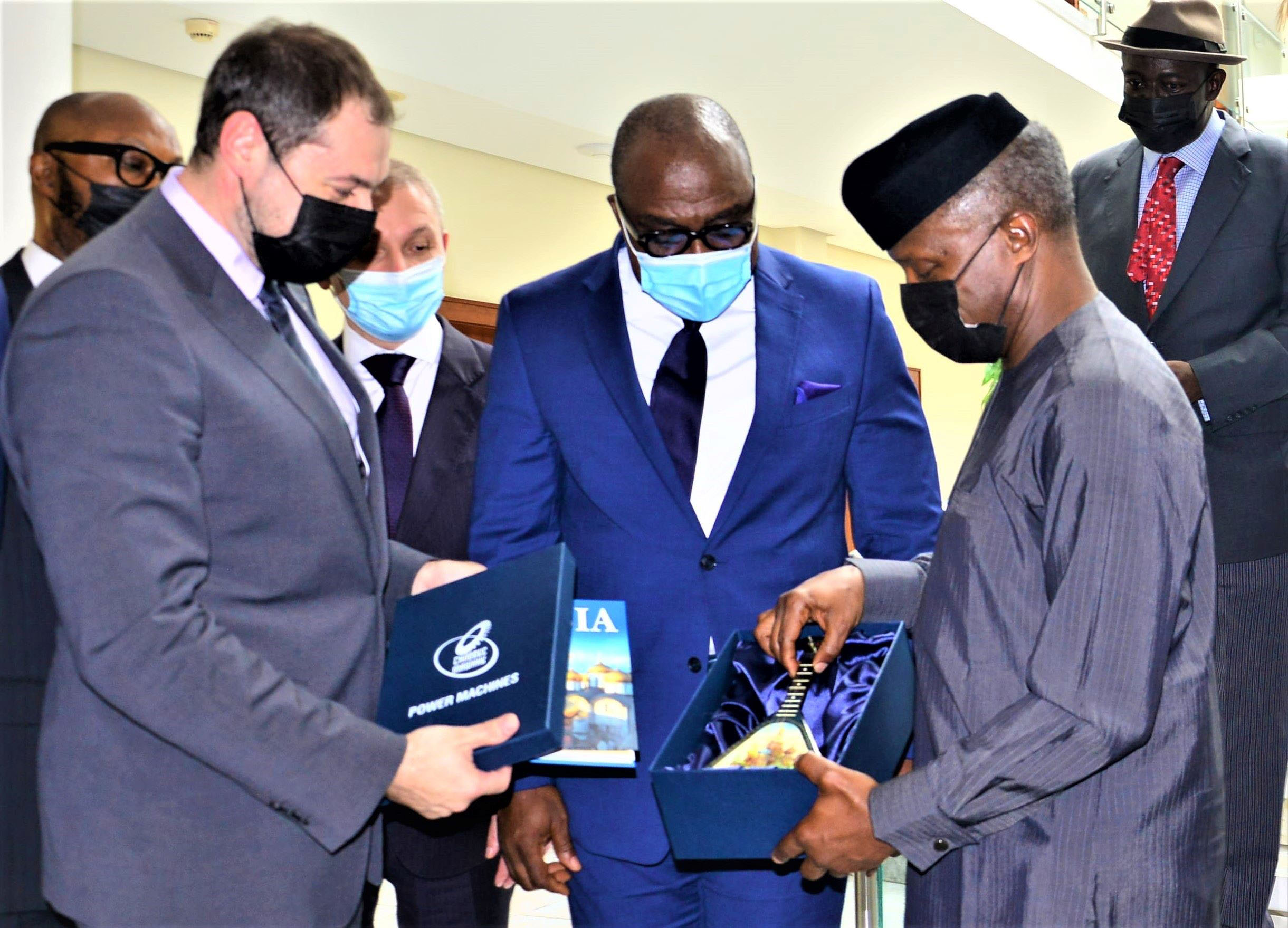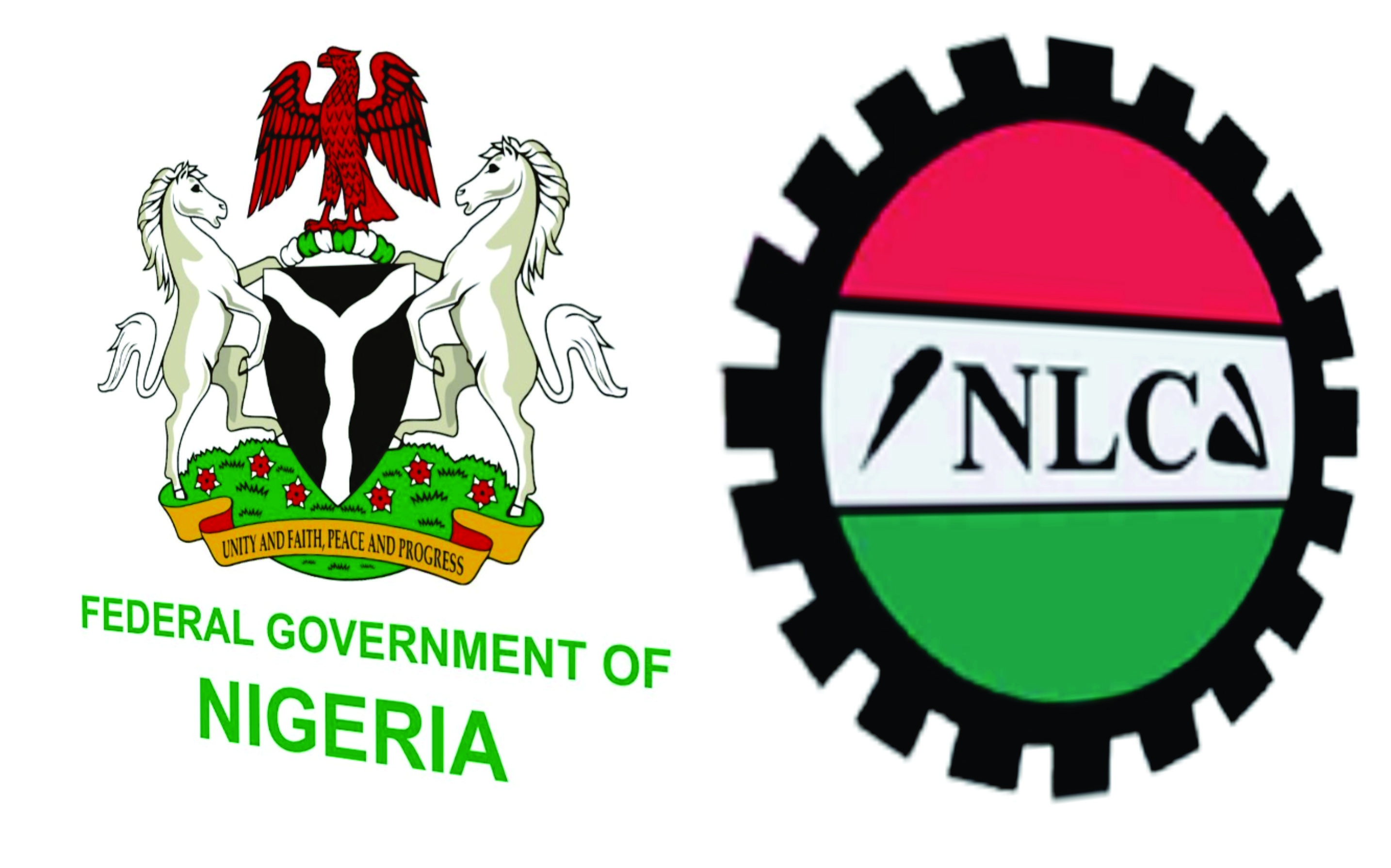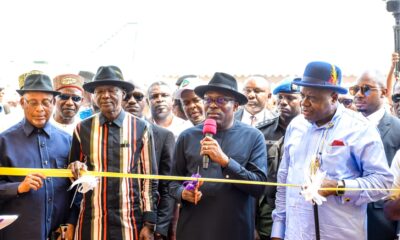Editorial
Leveraging Nigeria’s 5G Policy

Technology is a meaningful part of human life or existence and this is true for a fact in Nigeria.
Africa’s giant is one of the technological hotspots across the African continent and makes great use of digital resources to prosper. A technology leap that many Nigerians are anxiously awaiting is the deployment of 5G.
Nigerians were exhilarated when the Minister of Communications and Digital Economy, Isa Pantami, announced that the Federal Executive Council (FEC) had approved the Fifth Generation Network, also known as 5G for Nigeria. Pantami said that the council, in ratifying the 5G, took cognizance of the report of the International Telecommunications Union (ITU) and the World Health Organisation (WHO) that pronounced it safe to human health.
Assuring the safety of Nigerians, the minister said that the radioactivity of the network was lower than that of the 4G currently in use. He revealed that the deployment of the plan would be implemented in phases between now and 2025 and listed the benefits of the policy to include higher data rate, fuller capacity, lower latency, job opportunities and necessary assistance to the security agencies in localities where the high-quality frequency was lacking.
What is 5G? Very simply put, this is the next generation of mobile broadband. A real step up from the current 4G networks, it guarantees to be of great benefit to personal and business activities. 5G is the acronym for the Fifth Generation of wireless communications. Experts assert that it is an advancement on the previous 3G and 4G that can provide much faster connectivity and speed up technologies like the Internet of Things (IoT) and Artificial Intelligence (AI).
Oddly enough, Nigeria was the first African country to test 5G but was not able to implement it. However, South Africa was the first to apply it, using Vodacom and MTN in 2019. Kenya came in second place last April when the network was run, utilising Nokia and Huawei simultaneously. Although 5G is still not widely available, more and more African countries are embarking on testing. Telecommunications in Morocco, Egypt, Gabon, Uganda and Lesotho are carrying out preliminary conduction tests. Even in this case, it may take longer to adopt the technology as a whole.
According to some connoisseurs in information technology, when the 5G network becomes heart and soul operational across the country, it should equally convey a boost to businesses, especially as they are increasingly going online in the modern age, and taking advantage of digital channels to prosper. Of course, this can be noticed in the way Nigerian companies use online marketing to boost brand awareness or sell their products worldwide through digital platforms and websites. An effective 5G network is expected to help Nigerian businesses work faster, more flexibly and more productively.
However, despite the pontifical benefits, controversies, theories and myths have consistently stood in the way of the Federal Government’s declaration to roll out the Fifth Generation network in the country. There are apprehensions as to the likely harmful impact of the latest technology to the country, with some quarters citing cybersecurity and privacy threats, while others have referred to possible health-related predicaments from electromagnetic radiation and other negative impacts on the environment. Those concerns must be dealt with as the technology becomes operational in Nigeria.
Other claims still deal with health risks since the launch of 5G in China and its deployment in several other countries. They are Covid-19 vaccines contain 5G microchips; that 5G release is used to cover up the Covid-19 pandemic; and that 5G causes headaches, migraines, and dizziness and even cancer. In addition, it is believed to suppress the immune system and increase the risk of SARS-CoV-2, which causes Covid-19.
Nigeria’s National Security Adviser (NSA), Major-General Babagana Monguno (rtd), also raised critical national security concerns and caution regarding the introduction of the Fifth Generation (5G) network. Monguno spoke at the Senate investigative hearing on the current state of the 5G network in Nigeria and its technological impact on citizens, where he posited that if misplaced and left in the wrong hands, it could pose a threat to national security.
Many countries are finding it difficult to deploy the technology mainly because of the challenges and myths characterising it as well as its introduction. Similarly, Nigeria has its obstacles that have impeded the execution of the technology in the country. That was acknowledged by Pantami as one reason for the seemingly late take-off of the policy.
But those who should know better have come out invincibly to debunk the misgivings. The United Kingdom government recently issued perhaps the strongest rebuttal of these figments of the fertile imagination of some self-styled scientists. “There is absolutely no credible evidence of a link between 5G and Coronavirus; inaccurate information was being spread online about 5G”, the UK’s Department of Digital, Culture, Media, and Sport (DCMS) noted.
Though the reservations against the network are not scientifically proven, they must not be disparaged as there is a need for constant enlightenment to instil credence in Nigerians about the safety of the 5G technology. Enlightenment has to be intensified to encourage broader endorsement of the policy. Nobody should be held execrable for the pervasive misconception of robotics. When the origin of both the Covid-19 pandemic and the 5G technology is examined, it may easily be understood why people inter-relate them.
Notwithstanding the disinclinations, we believe the perks derivable from effectual 5G network deployment far outweigh the handicaps. Therefore, the Nigerian government should proceed with the declaration of information technology and telecommunications as vital infrastructure to facilitate the broadband strategy. Governments at all levels must also enhance their efforts to incorporate information technology with its potential to facilitate governance and deracinate corruption in the country.
The exhaustive adoption of information technology and migration of state operations from manual to digital will certainly ensure that the country conforms to the benchmark of government operations in the 21st century. 5G remains the best technology available; therefore, adopting it now is more suitable for the country to avoid playing catch-up later, which would be more exorbitant to bear up under.
Editorial
Solid Minerals, Cesspit Of Corruption

The recent revelations by former Labour leader and current Chair of the Senate Committee on Interior, Senator Adams Oshiomhole, have exposed a deeply troubling reality in Nigeria’s solid minerals sector. His disclosure that former military generals and foreign operators have systematically seized control of the country’s mineral deposits illuminates the extent of institutional decay and regulatory capture plaguing this vital economic sector.
Minister of Solid Minerals, Dele Alake’s confirmation of these allegations strengthens Oshiomhole’s claims. The minister’s clear identification of “powerful Nigerians” as the masterminds behind illegal mining operations, along with their alleged ties to terrorist financing networks, paints a troubling picture of the complex web of corruption that is undermining national security.
The audacious manner in which these mining syndicates operate reflects their deeply entrenched position within Nigeria’s power structure. Their apparent immunity from prosecution or oversight demonstrates how thoroughly they have infiltrated key institutions, enabling them to continue their exploitative activities without fear of consequences. This systemic failure has persisted across multiple administrations, highlighting the challenge of confronting these well-connected networks.
Former President Muhammadu Buhari’s tepid response to detailed intelligence briefings about the crisis represented a significant failure of leadership. The current administration under President Bola Tinubu appears to be following a similar pattern of inaction, raising serious questions about the political will to address the endemic corruption. This continued paralysis suggests either inability or unwillingness to challenge powerful vested interests.
The grim contrast between enforcement approaches in different regions of Nigeria reveals troubling inconsistencies in governance. While unauthorised petroleum refineries in the Niger Delta face swift and severe military action, illegal mining operations in the North continue largely unimpeded. This disparity in enforcement not only undermines the rule of law but also fuels regional tensions and perceptions of discriminatory treatment.
Selective enforcement practices by the government have created a dangerous precedent. Small-scale refiners in the South face immediate persecution, while large-scale illegal mining operations in the North proceed with apparent impunity. The uneven application of law enforcement has exacerbated security challenges and deepened existing regional divisions.
Shamefully, the deafening silence from authorities regarding widespread corruption in the mining sector strongly suggests high-level complicity. The “conspiracy of silence” has created an atmosphere of resignation among citizens, who witness the systematic looting of their national resources by a privileged few operating outside the bounds of law and accountability.
Further compounding this crisis is the psychological impact on the Nigerian populace. The visible impunity enjoyed by these mining cartels has fostered a sense of helplessness among ordinary citizens, who increasingly view government institutions as serving the interests of a corrupt elite rather than the general public.
Immediate and decisive actions are required to dismantle these criminal networks and restore integrity to the mining sector. Superficial reforms or symbolic gestures will prove insufficient; what’s required is a comprehensive strategy to investigate, prosecute, and punish all parties involved in illegal mining activities, regardless of their status or connections.
No one can imagine the security implications of allowing illegal mining to continue unchecked. The illicit funds generated from these operations provide essential financing for criminal organisations and extremist groups, creating a direct link between mineral theft and national security challenges. Addressing illegal mining therefore becomes critical for both economic and security reasons.
Reform of the extractive sector must extend beyond enforcement to include comprehensive regulatory overhaul. New frameworks must be established to ensure all mining operations adhere to strict environmental standards and contribute appropriately to national development. This includes implementing transparent permitting processes and ensuring proper revenue collection and distribution.
Transforming Nigeria’s mining sector represents a vital test of governance and national resolve. Success requires not only technical solutions but also the political courage to confront entrenched interests and implement lasting reforms. The future prosperity of Nigeria depends remarkably on whether its leaders can summon the will to protect and properly manage its vast mineral resources for the benefit of all citizens.
Editorial
Checking Terrorism Spread In The South

The intensified Nigerian Military campaigns against terrorists and bandits in the North have started to produce promising results, signalling a cogent turning point in the nation’s battle against insecurity. For years, these despicable elements have inflicted intolerable levels of hardships on innocent civilians, disrupting lives, livelihoods, and communities with unrestrained violence.
However, the military incursion, characterised by strategic raids, airstrikes, and well-coordinated operations, has considerably constrained their activities, leaving them on the defensive. The once-emboldened insurgents and bandits, who operated with impunity and plunged the North into chaos, are now feeling the heat gravely and are unable to prolong their reign of terror.
The aggressive push by the military is a welcome development, as it restores hope to the millions of Nigerians who have long yearned for peace and stability in the region. The exacerbating strikes disrupt not just the movement and operations of the criminals but also their supply chains, logistics, and communication networks, weakening their ability to regroup and reorganise.
The triumphs are a proof of the resolve of the Nigerian government and the armed forces to address insecurity directly, boosting the confidence of citizens in their efforts. However, maintaining this momentum is critical. Continued investment in intelligence, technology, and collaboration with local communities will not only solidify the progress made but also guarantee the ultimate eradication of these felons.
Nonetheless, the growing influx of battle-weary outlaws into the South-West region is becoming a cause for concern, as it raises questions about the security and stability of the area. This move by the culprits to establish a base for their illegal activities is seen as a calculated strategy, highlighting the changing tactics of terror groups and banditry networks.
Reports of security operatives apprehending suspected members of these groups during training sessions in Osun State indicate the seriousness of the situation. Such incidents not only suggest a possible increase in violence but also highlight the growing vulnerabilities within the South-West, a region that was once considered relatively shielded from the insecurity affecting other parts of the country.
The arrests in Osun State are just one example of the broader threat facing the area. With terror groups reportedly regrouping in large numbers, the implications for governance, economic development, and societal peace are profound. The porous nature of security infrastructure, the vast terrain, and the availability of soft targets make the region an enticing option for these outlaws to establish a base.
If left unchecked, the attempts of these felons to infiltrate the South-West could potentially lead to a spillover of terror and devastation experienced elsewhere. Therefore, it is vital to bolster intelligence-gathering mechanisms, enhance community-based surveillance, and ensure the rapid deployment of security forces to thwart the machinations of these bad actors before their activities escalate into a full-blown crisis. Proactive measures are needed now more than ever to protect the region from descending into a state of chaos.
Nigeria’s Department of State Services (DSS) has lately increased its efforts to ensure national security by conducting strategic operations in parts of Ijesaland, leading to the arrest of numerous individuals allegedly involved in terrorist activities. Acting on credible intelligence, the DSS carried out preemptive raids across several locations within the state, targeting individuals whose presence and actions posed potential threats to safety.
Among those apprehended were illegal immigrants who failed to present valid residential permits or provide satisfactory explanations for their presence and mission in both the state and the country at large. The operation calls attention to the agency’s commitment to safeguarding national integrity and underscores the extensive issue of porous borders, which have facilitated the convergence of undocumented aliens.
Given these developments, all the governors in the South should act in unison and strategise against the security threats posed by the terrorists to avoid being caught off guard. The South-South and South-East geopolitical zones should establish regional security outfits like their South-West counterpart. This requires cooperation with all other relevant stakeholders, such as socio-cultural groups and non-governmental organisations, that are willing to help in warding off criminals from the Southern part of the country.
On April 11, 2021, South-East governors announced the formation of a new regional security group called ‘Ebube Agu’ after a meeting at the Imo State Government House. This decision came in response to violent attacks on police and correctional facilities. Unfortunately, the initiative was not followed through and has since faded away. The lack of response from the South-South region is depressing. It is important that governors prioritise the security of their respective zones.
As the military ramps up its campaign against terrorists and bandits in the North, the temptation for survivors to flee to relatively peaceful locations, particularly in the South, is real. However, it is the duty of leadership to clearly communicate that they will not find refuge in the forests of states within the three geo-political zones in the South.
We hope that the apprehension of suspected trainee terrorists in Osun State will serve as a stark warning of the dangers that lie ahead. It underlines the need for all Southern states to strengthen their vigilance and preparedness. If rogue elements fleeing from the North wrongly assume that they can regroup and find solace in the South, their plans must be met with strategic defence mechanisms and a united regional response.
Editorial
New Federal Varsity In Ogoni

President Bola Ahmed Tinubu has made history by signing into law a bill that establishes the Federal Univer-
sity of Environment and Technology in Ogoni, Rivers State. This significant occasion marks a bold step forward not only for the Ogoni people but also for the Niger Delta region and Nigeria as a whole. It signifies a commitment to education, environmental sustainability, and technological advancement.
For the Ogonis, who have long been impacted by environmental challenges, the university represents a beacon of hope. It is more than just bricks and mortar; it is a symbol of empowerment and a pathway to a brighter future. This development is akin to a seed, planted with the promise of a flourishing harvest of skilled professionals.
The university’s emphasis on environmental technology is extremely important, especially given Nigeria’s climate crisis. Education plays a crucial role in developing sustainable solutions. The institution will provide students with the necessary skills and knowledge to address the environmental challenges affecting the Niger Delta region and beyond. This will have a momentous impact.
Signing the bill, the President praised the Ogoni people’s resilience and unity. He stressed that the institution would mark a “significant milestone in our national journey towards environment justice, education and sustainable development”. Tinubu said the university is a reaffirmation of his administration’s “unwavering commitment to the people of Ogoni, the Niger Delta and the nation as a whole. For decades, the Ogoni people have been at the forefront of fight for environmental restoration and sustainable development, shaping both national and global conversation of these critical issues.
“By signing this bill into law, we are taking a decisive step towards addressing historical grievances and creating new opportunities for learning, growth and prosperity. The university will serve as a centre of excellence, equipping young Nigerians with the knowledge and skill to tackle present environmental challenges, drive clean energy solutions and contribute to our national sustainable economic development.”
We commend President Tinubu for his visionary decision to establish the much-needed institution aimed at fostering development and progress. This initiative is a testament to his commitment to addressing critical social and economic knots and creating opportunities that will benefit the people. The President has laid a solid foundation for sustainable growth while demonstrating a genuine desire to empower and advance the nation’s collective interests.
In addition to his commendable action, we applaud Tinubu for initiating peace talks to bring stability and reconciliation to the troubled area. The decision to engage in constructive dialogue demonstrates a deep understanding of the relevance of inclusive governance and the role of peace in fostering meaningful development. For decades, Ogoni has endured turmoil and neglect, impeding its potential and the return of oil exploration activities.
By opening the door to peaceful negotiations, the President has made a bold and necessary move towards healing fractured relationships and fostering trust among stakeholders. This initiative holds the promise of ensuring that the voices and needs of the Ogonis are heard and respected. We urge all parties involved to seize this golden opportunity for lasting peace and progress. It is only through unity and mutual respect that the full potential of Ogoni, and by extension the nation, can be realised.
As steps are taken to acknowledge and remediate the damage caused by years of oil exploration and production, the Ogonis must reciprocate Mr. President’s gesture by fostering a climate of equanimity and stability. This will ultimately pave the way for the resumption of oil exploration and production. This is not a call to forget the past, but a pragmatic recognition that meaningful change and sustainable development require a collaborative approach.
The Federal Government has a responsibility to ensure that all academic disciplines offered by the new university are fully accredited to maintain the integrity and quality of the school. Without proper accreditation, the institution risks producing graduates who are ill-equipped to compete in the global workforce or contribute substantially to national development. Accreditation serves as a benchmark that ensures programmes meet academic standards and adhere to best practices across various fields of study.
Staff recruitment should be conducted carefully, as the individuals brought into a team can greatly influence an organisation’s performance, culture, and long-term success. The primary focus of recruitment efforts at the university should be on attracting the best candidates who possess the necessary skills, qualifications, experience, and values. Merit should be the guiding principle in decision-making throughout the hiring process, rather than favouritism or personal bias.
For a nation to thrive in the 21st century, a strong higher education system is not only desirable, but essential. Universities serve as the catalysts for innovation, the breeding grounds for future leaders, and the foundations of a knowledge-based economy. The Federal Government must acknowledge this vital role and take intentional actions to properly fund the university in Ogoni and develop infrastructure to ensure it meets international standards. Neglecting this responsibility would put its future prosperity and global competitiveness at risk.
This institution must not suffer the same fate as other federally-owned universities that have been left to decay. That will be a disservice to its purpose and potential. Many government-owned universities in the country have struggled with dilapidated infrastructure, underfunding, insufficient staffing, and interruptions caused by industrial actions due to unpaid wages or poor working conditions. These challenges have led to declining standards in education, putting both students and staff at a disadvantage. The Ogoni University must not be another victim of this worrying trend.
-

 News4 days ago
News4 days agoEnforce Discipline In Legislative Service, Fubara Charges New RSHA Commission
-
Sports4 days ago
NFF Mourns Midfield Pearl, Ogunlana
-
Business4 days ago
Coy To Deliver $30m Lagos Free Zone Infrastructure Facility In Q2
-
News4 days ago
Niger Republic Bars Nigerians With ECOWAS Passport
-

 Featured4 days ago
Featured4 days agoWe Support Rivers Workers To Feel Valued, Productive, Says Fubara …Inaugurates Bayelsa Labour House
-

 Niger Delta4 days ago
Niger Delta4 days agoBipi Celebrates Gen Asabuja On Birthday
-
Sports4 days ago
Former President Kicks Off New Bayelsa Stadium Project
-
Business4 days ago
NESGAS, Cakasa Sign Deal For 50,000MT LPG Storage Facility In Rivers

